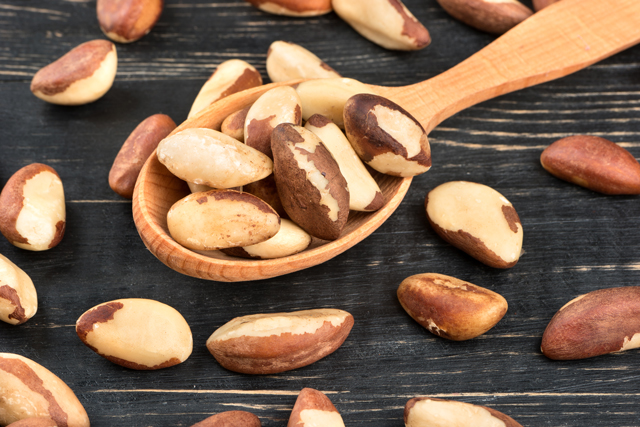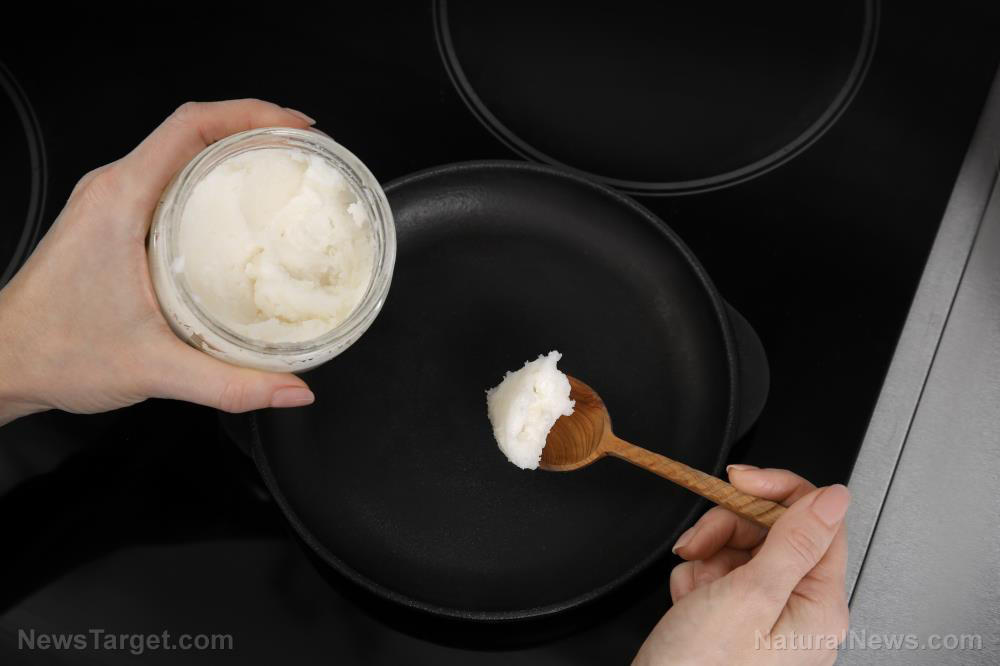Make dietary changes to manage your underactive thyroid naturally
08/20/2019 / By Zoey Sky

Hypothyroidism occurs when your body is unable to produce enough thyroid hormones. These hormones help control the body’s growth, repair, and metabolism. Hypothyroidism is often linked to symptoms such as fatigue and weight gain. If you have this thyroid condition, consider making dietary changes or take herbal remedies and supplements to manage your symptoms.
Hypothyroidism affects at least one to two percent of people around the globe, but the condition is ten times more likely to affect women than men.
What happens when you have hypothyroidism?
The thyroid gland, a small, butterfly-shaped gland at the base of your neck, produces and stores thyroid hormones that affect almost all of the cells in your body.
When the thyroid gland receives a signal called thyroid-stimulating hormone (TSH), it releases thyroid hormones into your bloodstream. This signal is sent by the pituitary gland, a small gland at the base of your brain, when thyroid hormone levels are low.
Sometimes, the thyroid gland doesn’t release thyroid hormones even when you have TSH. This condition is called primary hypothyroidism, the most common type of hypothyroidism.
About 90 percent of primary hypothyroidism occurs because of Hashimoto’s thyroiditis, an autoimmune disease wherein the immune system attacks your thyroid gland by mistake.
Primary hypothyroidism can also be caused by a genetic disorder, an iodine deficiency, taking certain medications, and surgery that removes part of the thyroid.
If you have secondary hypothyroidism, your pituitary gland is unable to work properly. This condition occurs when the thyroid gland doesn’t receive enough TSH.
Thyroid hormones are crucial since they control your metabolism, the process by which your body converts food into energy. This process affects your temperature and how fast you burn calories.
Changes in metabolism are the reasons why those with hypothyroidism usually feel fatigued and cold and gain weight easily.
Low-calorie and low-carb diets for hypothyroidism
Certain drugs, such as levothyroxine, can be used to treat hypothyroidism. However, these medications are also associated with negative side effects such as chest pain, congestive heart failure, infertility, insomnia, and palpitations.
Individuals with hypothyroidism usually have a slower metabolism. According to studies, aerobic exercise can help boost your thyroid hormone levels. Additionally, eating more protein can help boost your metabolism.
While foods alone won’t cure hypothyroidism, combining the right nutrients, herbs, and supplements will help restore thyroid function and address your symptoms.
In a study published in the journal Metabolism, researchers observed participants who were forced to drastically reduce their caloric consumption to 1000 calories per day while enrolling in an exercise program.
Nutritionists designed diets with either high carbohydrate levels or with low carbohydrate levels for the participants to follow. The researchers separated them into two groups, and each group followed one of the two diets to help them build up to 1000 calories.
Once the study concluded, the researchers found that a low-calorie diet helped reduce the severity of hypothyroidism in both groups, but thyroid function returned to near-normal levels much faster in the volunteers who followed a low-carb diet.
If you have hypothyroidism, follow a low-calorie and low-carb diet to manage your symptoms and promote weight loss.
Herbs, nutrients, and supplements for an underactive thyroid
An extract called ashwagandha is often used as an herbal supplement for managing anxiety. Data suggest that, aside from regulating the levels of cortisol which makes you anxious, ashwagandha also works on the thyroid hormones secreted by the pituitary gland. However, ashwagandha has several side effects, one of which is weight gain. (Related: Home remedies for hypothyroidism.)
Patients who have hypothyroidism may also have conditions like vitamin B12 deficiency and celiac disease. To improve your vitamin B12 levels, make dietary changes and consume more foods that contain the vitamin, like dairy products, dark leafy vegetables, and fortified cereals.
Increasing your intake of certain nutrients can also help improve your condition.
- Iodine – Iodine is an essential mineral that you need to produce thyroid hormones. Sources include dairy, eggs, fish, and seaweed.
- Selenium – Selenium helps your body activate thyroid hormones so they can be used by the body. The nutrient also helps minimize inflammatory reactions and improves thyroid function. Additionally, increased selenium levels are linked to a stronger immune system and improved cognitive function. Sources include Brazil nuts, eggs, legumes, sardines, and tuna.
- Zinc – Zinc also helps your body activate thyroid hormones. Zinc-rich food sources include beef, chicken, oysters, and other shellfish.
Follow a nutritious diet and consume foods rich in nutrients like iodine, selenium, and zinc to manage your hypothyroidism.
Sources include:
Tagged Under: alternative medicine, ashwagandha, clean food, Diets, disease treatments, food cures, food is medicine, functional food, Hashimoto's throiditis, herbal medicine, Herbs, hypothyroidism, iodine, natural cures, natural medicine, natural remedies, nutrients, prevention, primary hypothyroidism, remedies, secondary hypothyroidism, selenium, supplements, thyroid gland, thyroid hormones, vegetables, weight gain, zinc
RECENT NEWS & ARTICLES
COPYRIGHT © 2017 HEALING NEWS



















